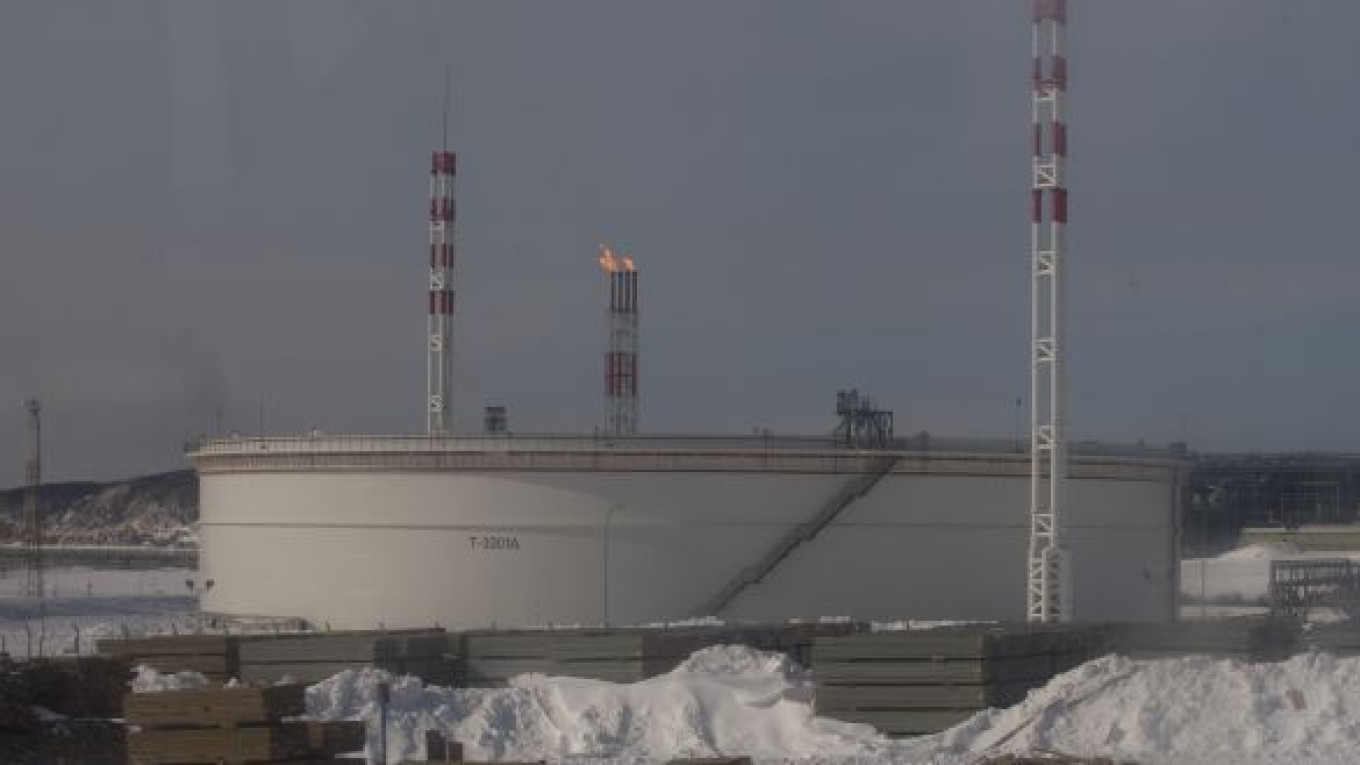Building an LNG plant on the Yamal Peninsula could be an alternative to supplying natural gas to Europe via the South Stream pipeline project, Energy Minister Sergei Shmatko said Thursday.
In the face of Turkish delays in issuing a final permit for allowing South Stream to transit under its territorial waters of the Black Sea, Russia is considering a number of alternative options to supply gas to Europe, the minister said. A Yamal plant would make economic sense, because the liquefaction process should be located as close as possible to the gas production site, he told journalists after a Presidium meeting chaired by Prime Minister Vladimir Putin.
"We're not hostages of one situation for sure. We'll have several alternative options to supply gas directly to European consumers," Shmatko said.
The minister said Russia needs the supply flexibility in case it faces obstacles in laying the underwater stretch of the pipeline, including technical problems, as well as difficulties with signing long-term contracts on its own terms or getting permits.
Turkey has yet to issue the final permit for the part of the South Stream pipeline crossing its Black Sea territory.
Russia, however, has no intention to give up South Stream, because it already has agreements with its European partners, Shmatko said.
Putin ordered Shmatko last week to research the option of building an LNG plant on the Russian coast of the Black Sea to produce gas that could be transported by ship, in addition to the pipeline.
Choosing this location, with the gas being supplied only within the Black Sea basin, will be "the most costly option," Shmatko said at the Presidium meeting.
Meanwhile, Finance Minister Alexei Kudrin said additional state revenues from oil and gas sales must be put in reserve to help lower inflation rates.
Inflation stood at 0.8 percent in February, while the Central Bank's forecast for this month is 0.6 percent.
Kudrin said the ministry was unlikely to satisfy recent requests of state agencies, which have been asking to use part of the windfall.
"They smelled money," Putin said jokingly.
Part of the additional revenue coming from the oil and gas taxes and duties will be used to lower the budget deficit and increase the reserve fund, Kudrin said.
The Presidium also approved a new strategy to develop the domestic banking sector over the next four years, replacing the one that expired in 2008.
The new strategy, aimed at increasing the quality of banking services, requires all banks to raise the minimum capital threshold to 180 million rubles, from the current 90 million rubles, starting next year. The threshold will then increase to 300 million rubles starting in 2015.
Natural gas futures rose to the highest price in more than a month after a U.S. Energy Department report showed a bigger-than-forecast stockpile decline in that country. Gas advanced as much as 4.9 percent after the said inventories fell 56 billion cubic feet in the week ended March 11 to 1.62 trillion cubic feet, Bloomberg reported Thursday. Natural gas for April delivery rose 17.5 cents, or 4.4 percent, to $4.113 per million British thermal units at 12:20 p.m. on the New York Mercantile Exchange. The contract touched $4.129, the highest intraday price since Feb. 10. The futures are down 6.6 percent this year.
A Message from The Moscow Times:
Dear readers,
We are facing unprecedented challenges. Russia's Prosecutor General's Office has designated The Moscow Times as an "undesirable" organization, criminalizing our work and putting our staff at risk of prosecution. This follows our earlier unjust labeling as a "foreign agent."
These actions are direct attempts to silence independent journalism in Russia. The authorities claim our work "discredits the decisions of the Russian leadership." We see things differently: we strive to provide accurate, unbiased reporting on Russia.
We, the journalists of The Moscow Times, refuse to be silenced. But to continue our work, we need your help.
Your support, no matter how small, makes a world of difference. If you can, please support us monthly starting from just $2. It's quick to set up, and every contribution makes a significant impact.
By supporting The Moscow Times, you're defending open, independent journalism in the face of repression. Thank you for standing with us.
Remind me later.


